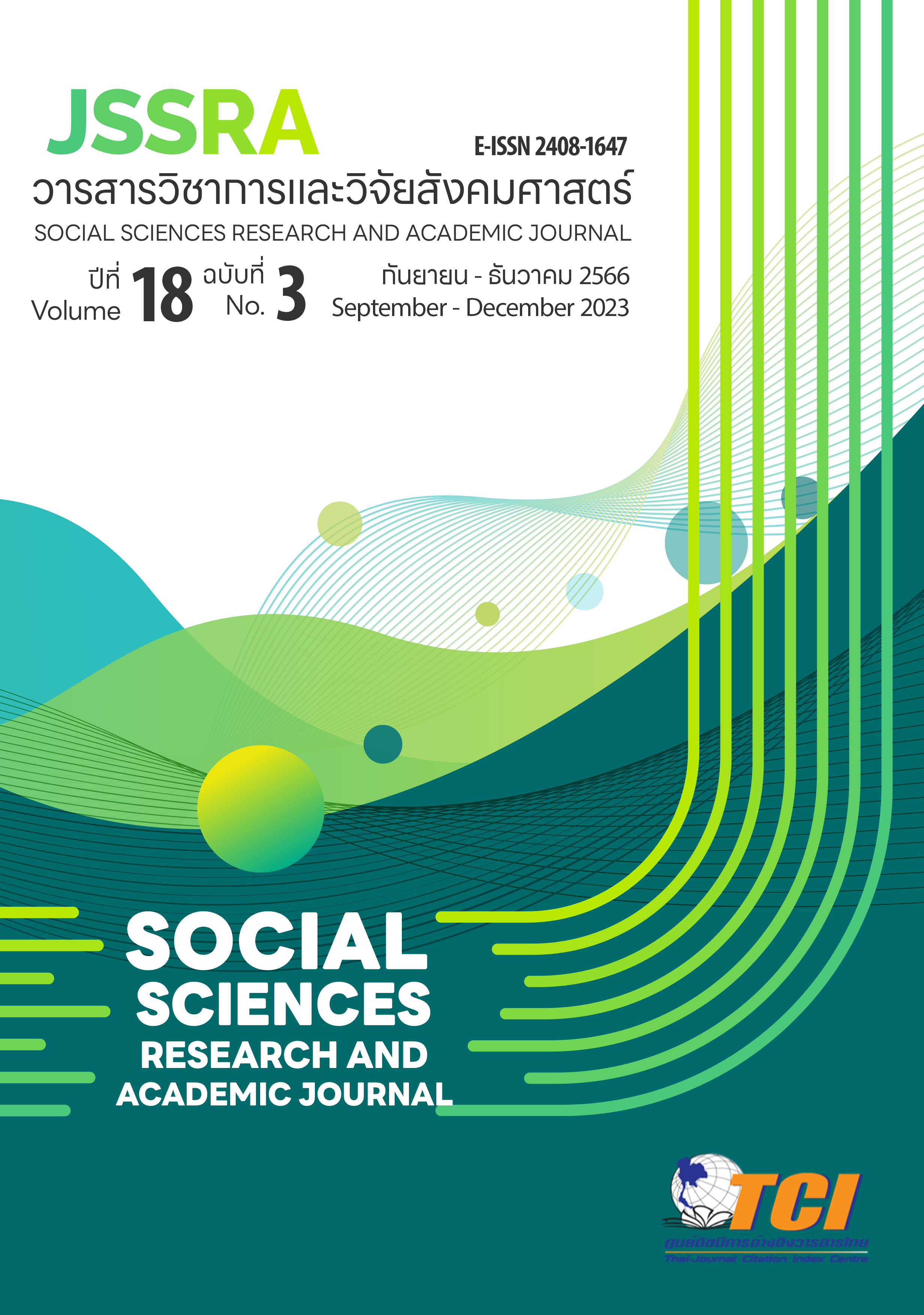การพัฒนากิจกรรมการเรียนรู้คณิตศาสตร์โดยใช้ CORE Model เพื่อเสริมสร้างความสามารถการเชื่อมโยงทางคณิตศาสตร์ในชีวิตประจำวัน สำหรับนักเรียนชั้นมัธยมศึกษาปีที่ 1 The Development of Mathematics Learning Activities by Using CORE Model to Enhance Mathematical Connection Skills in Everyday Life for Grade 7 Students
Main Article Content
Abstract
The objectives of this research were 1) to construct and evaluate the efficiency of the mathematics learning activities by using CORE Model to enhance mathematical connection skills in everyday life for grade 7 students as the criteria of 75/75, 2) to compare of mathematical connection skills in everyday life before and after using the mathematics learning activities by using CORE Model, and 3) to compare of mathematical connection skills in everyday life after using the mathematics learning activities by using CORE Model with the criteria at 75 percent. This study was conducted through research and development methodology. The sample consisted of 42 grade 7, studying in the second semester of the 2022 at Phitsanulok Pittayakom School, The Secondary Educational Service Area Office Phitsanulok Uttaradit selected by cluster random sampling. This research used one group pretest-posttest design. The research instruments included the mathematics learning activities by using CORE Model to enhance mathematical connection skills in everyday life for grade 7 students, lesson plans by using CORE Model and the mathematical connection skills in everyday life test. Data were analyzed using mean, standard deviation, percentage, and t – test.
The research results revealed that: 1. The mathematics learning activities developed, there were 4 steps: 1) Connecting Knowledge, 2) Organizing Information, 3) Reflecting on Learning, and 4) Extending the Experience. The results of appropriateness of learning activities were at a highest level (= 4.61, S.D. = 0.38) and the efficiency was 76.70/77.16, which was in accordance with the specified criteria. 2. The students had mathematical connection skills in everyday after learning which was higher than before learning and statistically significant at the .05 level. 3. The students had mathematical connection skills in everyday after which was higher than the criteria at 75 percent and statistically significant at the .05 level.
Article Details
References
ธานินทร์ อินทรวิเศษ. (2564). ภาพสะท้อนการศึกษาไทยหลังภาวะโควิด 2019. วารสารการบริหารนิติบุคคลและนวัตกรรมท้องถิ่น, (7)4, 323-334.
นพดล กองศิลป์. (2561). การสอนคณิตศาสตร์ในศตวรรษที่ 21. ปทุมธานี: พิมพ์พิจิตร.
รัตนะ บัวสนธ์. (2552). การวิจัยและพัฒนานวัตกรรมการศึกษา. กรุงเทพฯ: คำสมัย.
วีระยุทธ กาญจน์ชูฉัตร. (2564). ‘โรคใหม่’ สร้าง ‘โลกแห่งการเรียนรู้ใหม่: อนาคตการศึกษาไทยยุคหลัง COVID – 19. สืบค้นจาก https://www.eef.or.th/future-of-thai-education-after-covid19/
เวชฤทธิ์ อังกนะภัทรขจร. (2555). ครบเครื่องเรื่องควรรู้สำหรับครูคณิตศาสตร์: หลักสูตรการสอนและการวิจัย. กรุงเทพฯ: จรัสสนิทวงศ์การพิมพ์.
สถาบันส่งเสริมการสอนวิทยาศาสตร์และเทคโนโลยี. (2555). ทักษะ/กระบวนการทางคณิตศาสตร์. กรุงเทพฯ: คุรุสภา.
Auliani, Karim, & Amalia, R. (2018). Pengaruh Model Pembelajran CORE Terhadap Kemampuan Matematis Siswa SMP Kelas VIII. International Journal of Education, 8(1), 112-117.
Mardiana , Hera D. & Ratri I. (2020). Pengaruh Model Pembelajaran CORE (Connecting, Organizing, Reflecting, Extending) Terhadap Kemampuan Koneksi Matematis Siswa Kelas VIII SMP N 3. Rambah, Journal ABSIS, 12(2), 6-11.
National Council of Teacher of Mathematics (NCTM). (2000). Principles and standards of school mathematics. N.P.: National Council of teacher of Mathematics.
Roxanne G. M. & Robert C. C. (2004). Making Thinking Visible: A Method to Encourage Science Writing in Upper Elementary Grades. Reprinted with permission from Science and Children, Vol. 42, No.3.


